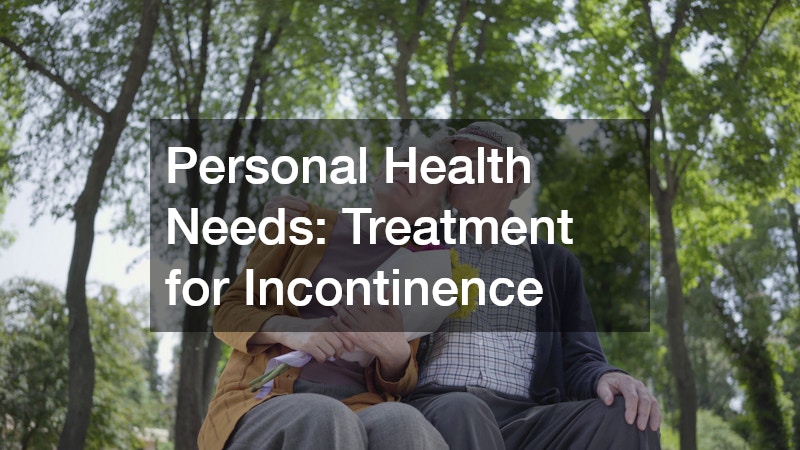
Aging gracefully is more than a sentiment—it’s a right and reality that can be made accessible through education, support, and the proper medical services. With advancing age, seniors encounter a variety of health and lifestyle changes that require thoughtful and informed decisions. Empowering our aging population starts by understanding the core healthcare services that are most impactful to their quality of life. Let’s explore the foundational services every senior—and their support system—should understand to navigate healthcare effectively and live with dignity.
Physical Wellness: Navigating the Role of a Chiropractor
As people age, they often experience musculoskeletal issues such as joint pain, stiffness, and spinal misalignment, which can significantly impact daily life. Chiropractic care offers non-invasive relief for these common ailments by focusing on the diagnosis and manual adjustment of misaligned joints and vertebrae. For seniors, this kind of treatment can alleviate chronic pain, improve posture, and enhance mobility, all without relying heavily on medication. Chiropractic sessions can also reduce dependency on painkillers, which often pose risks like dizziness or gastrointestinal problems for older adults. A doctor reference is typically required before beginning treatment, especially when seniors have underlying conditions like osteoporosis or arthritis. This ensures the chiropractic approach aligns safely with their health profile. In many cases, seniors report improved sleep, better digestion, and increased energy following regular chiropractic visits. It’s vital to work with licensed practitioners familiar with geriatric care, as techniques must be gentle and adjusted for fragile bones. When included as part of a holistic wellness plan, chiropractic care supports better balance and reduces the likelihood of falls, fostering independence and reducing hospitalization risks. Always consult with a healthcare provider for a doctor reference before scheduling your first session.
Financial Guidance: Partnering with Agencies

Understanding healthcare costs and insurance coverage is often one of the most confusing aspects of senior care. Insurance agencies that specialize in senior plans provide essential assistance in navigating this complex landscape. From Medicare Advantage plans to supplemental insurance and long-term care policies, these agencies help seniors make cost-effective choices without sacrificing access to quality care. A well-versed insurance agent can explain the nuances of coverage, helping seniors understand what services are covered, what out-of-pocket costs to expect, and how to select the right plan for evolving medical needs. A doctor reference might be required when applying for specific coverage types, particularly for treatments or procedures deemed medically necessary. Insurance agencies also serve as advocates, helping policyholders file claims, understand denials, and manage billing errors. These professionals ensure that seniors are not overpaying or being denied care unjustly. In addition, insurance experts often work directly with home care providers, pharmacies, and medical equipment suppliers to coordinate coverage. Given the rapidly changing healthcare system, maintaining regular contact with an insurance agency can help seniors stay informed, financially protected, and empowered to make confident decisions about their care.
Oral Health: The Importance of Dental Health for Seniors
Dental care is often overlooked in senior healthcare, yet it plays a vital role in overall health and quality of life. Issues like gum disease, tooth decay, and oral infections become more prevalent with age and can impact more than just your mouth. Poor oral hygiene is linked to heart disease, diabetes, and even respiratory infections. Seniors often face obstacles like decreased dexterity or dry mouth from medications, which exacerbate dental issues. Routine dental visits help prevent serious complications and are often based on a doctor reference from a general practitioner. Regular cleanings, x-rays, and oral exams can catch problems early before they become painful or expensive to treat. Seniors with dentures must also be vigilant about their oral health, as ill-fitting appliances can lead to sores and difficulties eating or speaking. Some seniors may qualify for public programs or discounted services at dental schools. Regardless of income, proper dental hygiene—brushing, flossing, and regular visits—should be maintained for life. Dental care doesn’t just promote physical health; it improves confidence and social interactions. A beautiful, pain-free smile enables seniors to eat better, feel better, and live more joyfully.
Aging in Place: Services from Home Health Care

Many seniors prefer the comfort and familiarity of their own home as they age, making home care agencies an essential support system. These agencies provide a range of services from skilled nursing and physical therapy to assistance with daily tasks like bathing, meal preparation, and medication management. The key advantage of working with reputable home care agencies is personalized service—each care plan is tailored to the individual’s specific health needs and lifestyle. Often initiated through a doctor reference, home care services help seniors recover from illness, manage chronic conditions, or simply maintain independence. One-on-one attention improves safety, especially for those at risk of falls or memory-related challenges. In addition to medical support, home caregivers offer emotional companionship, reducing isolation and improving mental well-being. Families benefit from knowing their loved ones are in professional hands without uprooting their lives to move into a facility. Many agencies are Medicare-certified, meaning services could be covered depending on the medical necessity. With home care agencies, seniors can thrive in their environment while receiving top-tier care, bringing peace of mind to both them and their families.
Specialized Support: Understanding Memory Care Living
For seniors living with Alzheimer’s disease or other forms of dementia, memory care assisted living facilities offer specialized environments tailored to their unique needs. These residences are designed to provide both safety and stimulation, with secure layouts, structured routines, and trained staff who understand memory disorders. Unlike traditional assisted living, these centers focus on cognitive therapies and activities to slow decline and enhance quality of life. A doctor reference is usually required for admission, as facilities must assess cognitive function and tailor care accordingly. Memory care communities provide a combination of medical oversight, behavioral support, and personal care, making them ideal for individuals who may wander, forget to eat, or become easily agitated. Families benefit from knowing their loved ones are in an environment that fosters dignity, engagement, and emotional well-being. Common features include music therapy, art programs, reminiscence activities, and pet therapy—all designed to spark joy and recall. While this level of care may be more costly, many families find it invaluable for their loved one’s safety and happiness. With proper support, even those with advanced cognitive decline can enjoy meaningful experiences in a nurturing setting.
Balance and Recovery: Exploring Vertigo Options

Dizziness, balance issues, and vertigo are common complaints among seniors, often stemming from inner ear disorders, medication side effects, or neurological problems. Effective vertigo treatment begins with accurate diagnosis, usually involving a doctor reference to a specialist such as an audiologist or ENT (ear, nose, and throat) doctor. Treatment depends on the underlying cause but may include vestibular rehabilitation therapy, medications, or lifestyle adjustments. Physical therapy plays a crucial role, using exercises designed to retrain the brain to manage balance more effectively. Vertigo can be more than a nuisance—it significantly raises the risk of falls, which can lead to fractures, hospital stays, or even permanent disability. Early and proper treatment can restore confidence, improve mobility, and enhance independence. For some, simple interventions like hydration, dietary changes, or head-positioning maneuvers (like the Epley maneuver) can offer relief. More persistent cases may require ongoing therapy or surgical options. Regardless of severity, managing vertigo proactively is key to long-term wellness and fall prevention. Don’t delay seeking care if symptoms persist—proper vertigo treatment can dramatically improve quality of life.
Community and Connection: The Role of Living Facilities
Modern Senior Living communities are far more than retirement homes—they are vibrant environments that promote wellness, social engagement, and safety. These residences offer a wide range of living arrangements, from independent apartments to fully assisted care units. Seniors benefit from onsite dining, recreation, fitness classes, and 24/7 medical support if needed. Many people transition into Senior Living communities after a doctor reference suggests increased support for daily activities or safety monitoring. These facilities foster connection, reduce isolation, and simplify life through amenities like housekeeping, transportation, and organized outings. The environment often includes wellness programs tailored to older adults, addressing everything from fitness to mental stimulation. Moving into a Senior Living community is a significant life step, but one that can offer freedom rather than restriction. Residents often form close friendships, rediscover hobbies, and enjoy a maintenance-free lifestyle. For families, it provides reassurance that their loved one is safe, engaged, and well cared for. As needs evolve, many communities offer tiered support that can accommodate aging in place. Empowerment through community is one of the greatest gifts we can offer our seniors.
Personal Health Needs: Treatment for Incontinence

Incontinence affects millions of older adults, yet it remains one of the least discussed medical challenges due to embarrassment or misinformation. Fortunately, there are effective incontinence treatment options that restore dignity and quality of life. Treatments range from lifestyle modifications and pelvic floor exercises to medications and surgical interventions, depending on severity and cause. Conditions such as diabetes, stroke, or menopause-related changes often contribute, making a thorough evaluation crucial. A doctor reference is essential for assessing the type of incontinence and developing an appropriate treatment plan. Many seniors benefit from working with urologists or continence specialists who can identify underlying causes and offer targeted solutions. Product options have also improved significantly, with discreet, comfortable incontinence wearables that don’t interfere with daily life. Behavioral strategies like scheduled toileting and fluid management can also help reduce accidents. By openly addressing this issue, seniors can regain confidence, participate in activities, and maintain independence without fear of embarrassment. Early intervention is key—don’t delay discussing symptoms with a healthcare provider. Incontinence is a medical issue, not a personal failure, and it is treatable.
Independence and Accessibility: Choosing the Right Scooter
Mobility challenges can make daily tasks frustrating or even dangerous for seniors. A mobility scooter offers a safe and reliable way for individuals with limited strength or endurance to reclaim their freedom. These battery-powered vehicles are ideal for errands, outdoor activities, or moving around large residences. Selecting the right scooter involves evaluating needs such as travel distance, terrain, weight capacity, and portability. A doctor reference can help determine medical necessity for insurance reimbursement or tax deductions. Modern scooters come in a variety of models, including compact foldable designs for travel and rugged four-wheelers for outdoor use. They include features like swivel seats, armrests, and even baskets for storage, making them both functional and comfortable. Seniors using scooters report improved mental health, as increased mobility often leads to greater social interaction and reduced dependence on caregivers. It’s crucial to receive training and practice using the device to avoid accidents. When chosen and used correctly, a mobility scooter becomes more than a mode of transport—it’s a bridge to an active, engaged lifestyle.
Restoring Smiles: Considering Tooth Implants
Tooth loss can have significant physical and emotional effects on seniors, from difficulty chewing to self-consciousness in social settings. Dental implants offer a permanent, natural-looking solution that restores both function and appearance. Unlike dentures, implants are surgically placed into the jawbone, making them secure and long-lasting. They can support single crowns, bridges, or even full-arch restorations. While not all seniors are candidates, a doctor reference and a full dental evaluation can determine suitability. Factors like bone density, overall health, and lifestyle will influence the decision. One major benefit of implants is that they preserve jawbone structure, which can prevent the “sunken” facial look associated with missing teeth. In addition, implants do not require adhesives and feel much more like natural teeth. Though the process can be lengthy and involves several appointments, the results are often life-changing. Improved speech, better digestion, and enhanced confidence are just a few of the many rewards. Dental implants represent a powerful tool in helping seniors maintain a vibrant, interactive life well into their later years.
Empowering seniors begins with access to reliable information and the confidence to make well-informed choices. Caregivers, families, and seniors themselves must advocate for the services they deserve, supported by clear communication, trusted professionals, and up-to-date resources. With the right combination of services and support—guided by a trusted doctor reference where necessary—aging can be a powerful chapter full of meaning, dignity, and joy. Let this guide serve as a stepping stone toward an empowered, healthy future for every senior.



